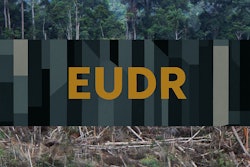A recent news report about illegal logging in Myanmar (also known as Burma), led to a question about possible Lacey implications. I promised to offer some more info and here it is, a post on How to Buy from Burma.
Buying teak or other Burmese timber through China raises questions about the wood’s legality.
Since May 2012, when the Obama Administration announced that the United States would begin easing certain financial and investment sanctions on Burma in response to the historic reforms taking place, wood traders have been interested in reestablishing direct wood trade with Burma. However, direct business with Burma is problematic for Americans—the U.S. government continues to severely restrict trade with certain organizations and individuals. But as made clear in the article about the arrest of Chinese loggers, as well as past studies by ENGO’s, buying teak or other Burmese timber through China raises questions about the wood’s legality.
Recognizing these challenges, the International Wood Products Association (IWPA) has provided at least part of the solution. They secured a Treasury Department license members can use to purchase both directly and legally.
Cindy Squires, the IWPA’s Executive Director, said that:
An important part of the U.S. Government’s decision to allow this trade was IWPA’s commitment to encourage the Myanmar timber industry and government to put into place reforms to ensure that logs are harvested in Burma in a sustainable manner and in compliance with Burmese law. U.S. importers operating under the license are to encourage all mills supplying product to U.S. importers to work toward independent legality verification.
Caroline McIlvain, IWPA Board member and international buyer for the J. Gibson McIlvain Company, sees this as a positive development in multiple ways. As noted in my earlier posts, all evidence shows that a healthy forest industry leads to healthy forests. Caroline says that in terms of Burma that:
The Myanmar forests used to be the picture of sustainability under British management, but unfortunately, they were not maintained under military government rule. Embargo and political difficulties in recent decades have prevented any outside guidance or intervention, and the forests have suffered. Now with a new government in place, we (and the European and Australian timber trade) have an opportunity to lend help and advice. With the log bans and export regulation, there is a fundamental shift in the Myanmar timber trade from operating solely as a log export country into becoming a sawmill country. This is a major shift, and there will be a lot for them to learn. This new license has given us and other IWPA members a place at the table where we can encourage the modern principles of sustainability and quality in Myanmar.
Caroline also pointed out that while working under the IWPA license is a necessary step, it is only the first step an importer should take when considering direct transactions in wood products from Burma. She says that anyone interested in direct transactions with Burmese entities “should make a point of meeting potential suppliers directly and doing due diligence on them.“
Cindy wanted to make sure that importers understand the limits and extra requirements Burmese business has:
Importers are subject to reporting and supplier engagement requirements. Also, it’s important to note that license covers direct and indirect transactions with the Myanmar Timber Enterprise, not with any other Specially Designated National (SDN).
Both Cindy and Caroline noted that a very healthy result of this is the potential to expand the market with lesser-known wood species that will help promote sustainable harvesting for the full forest.
So if you want your teak direct from the source and if you want to help support the development of a sustainable forest economy in Burma, contact the IWPA today.
































